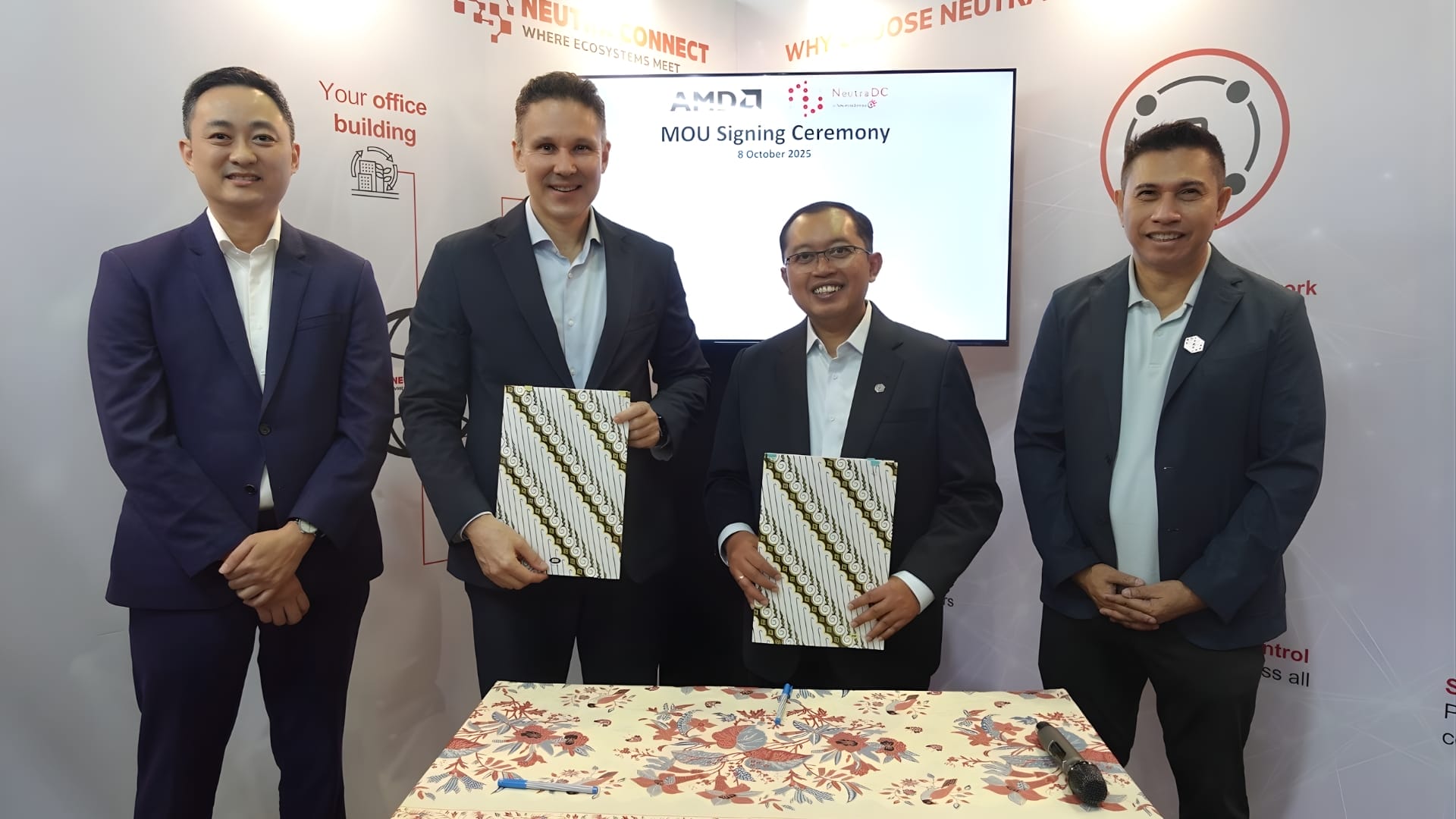NeutraDC signs strategic MoU with AMD to accelerate AI ecosystem integration
NeutraDC and AMD sign an MoU to boost AI ecosystem development and expand high-performance computing access across Southeast Asia.

NeutraDC Singapore has signed a Memorandum of Understanding with AMD to advance the integration of high-performance AI technologies across Southeast Asia. The agreement marks a significant step in NeutraDC’s efforts to embed advanced computing capabilities into its digital infrastructure and strengthen support for growing enterprise AI demand in the region.
The collaboration began in October and covers a wide scope of work, including technical consulting, proof-of-concept development and planning for commercial deployment. Both companies will work together to test AMD Instinct accelerators and identify practical use cases where the technology can support business transformation. The partnership will also explore joint initiatives focused on AI research and training to develop future engineering talent and foster new AI-driven products.
NeutraDC Singapore CEO Sendang Praptomo said the agreement underscores the company’s commitment to making advanced AI technologies more accessible. He stated: “By collaborating with AMD, a global leader in the area of high-performance and adaptive computing, we believe that we can create a positive impact by advancing the availability of advanced GPU services and talents in the region. With our strengths in cloud-connect and data centres in the region, we can bring AI solutions closer to the end users and increase AI adoption to bring transformative change in people’s lives.”
Keith Strier, Senior Vice President for Global AI Markets at AMD, said the partnership aligns with the company’s mission to broaden access to high-performance AI compute. “This agreement with NeutraDC strengthens our commitment to expanding access to high-performance AI infrastructure across Southeast Asia. Together, we aim to deliver the compute capabilities and expertise needed to move their AI strategies forward with confidence,” he said.
Expanding AI access for enterprises
The agreement comes at a time when organisations across many sectors are increasing their investment in AI. NeutraDC and AMD plan to support this shift by providing the infrastructure and expertise needed to address more complex workloads, adopt diverse AI models and deploy new applications that can improve efficiency, decision-making and customer experience.
By integrating AMD technologies into its service offerings, NeutraDC aims to help enterprises test, refine and scale AI systems more effectively. The collaboration also positions NeutraDC to deliver high-performance GPU services that support a wider range of AI use cases, from analytics and automation to product development and large-scale computation.
Both companies expect the partnership to create opportunities for innovation and strengthen competitiveness as AI becomes a central part of digital transformation across the region.
Strengthening NeutraDC’s digital ecosystem
NeutraDC is part of Telkom Indonesia through PT Telkom Data Ekosistem and operates a regional Digital Ecosystem Hub designed to connect global enterprises with Indonesia’s rapidly growing digital economy. Its network includes 29 data centres across Indonesia and Singapore, ranging from hyperscale to enterprise and edge facilities. This infrastructure supports seamless global connectivity and gives businesses access to more than 171 million digital users.
Its services span colocation, data centre interconnection, and service management. The Neutra Connect platform integrates data centres, multi-cloud environments, applications, devices and partners, while Neutra Compute provides access to high-performance GPUs to accelerate enterprise AI adoption. Together, these offerings form a unified ecosystem that supports companies looking to innovate, scale and strengthen their digital operations using AI.
AMD continues to play a central role in global computing innovation, drawing on more than five decades of experience in high-performance computing, graphics and visualisation technologies. Its products are used by consumers, enterprises and research institutions worldwide, and the company remains focused on pushing the boundaries of what advanced compute hardware can achieve.
















